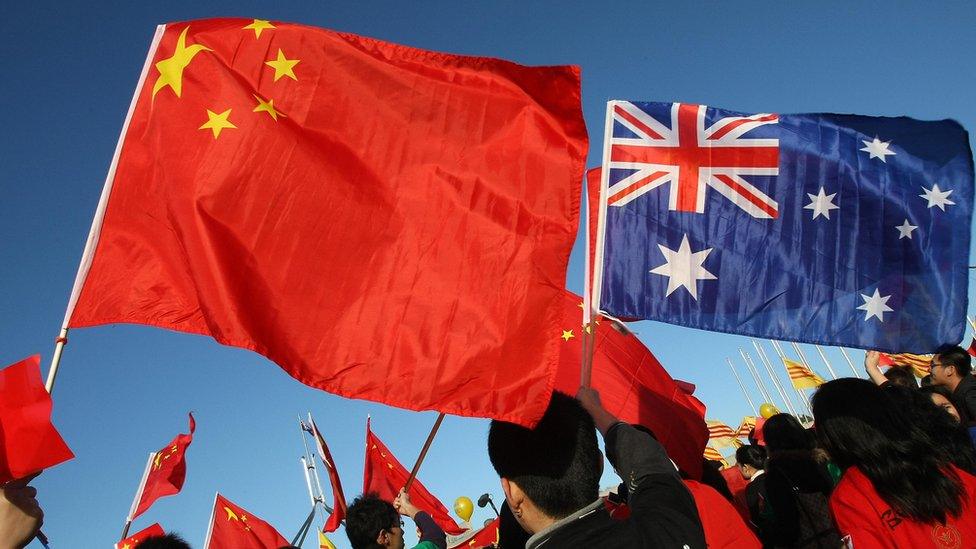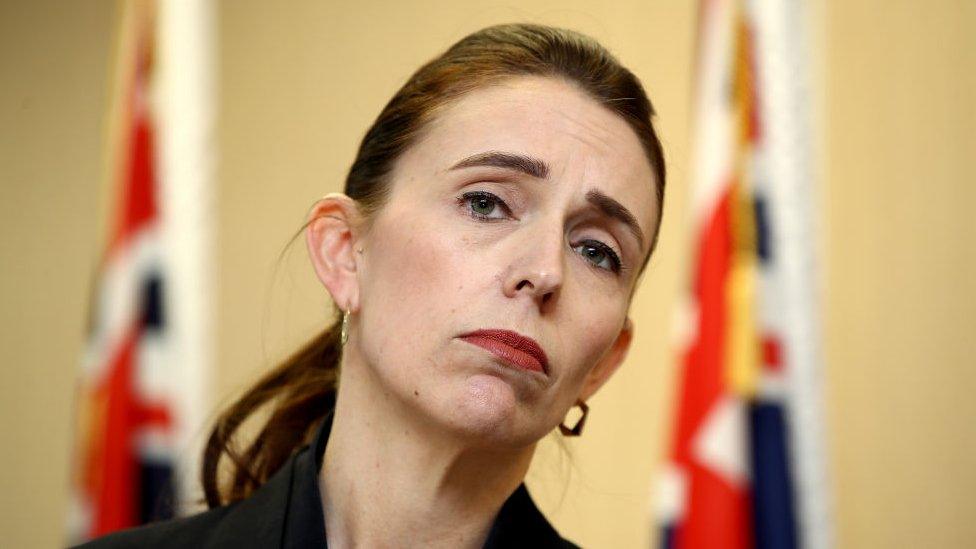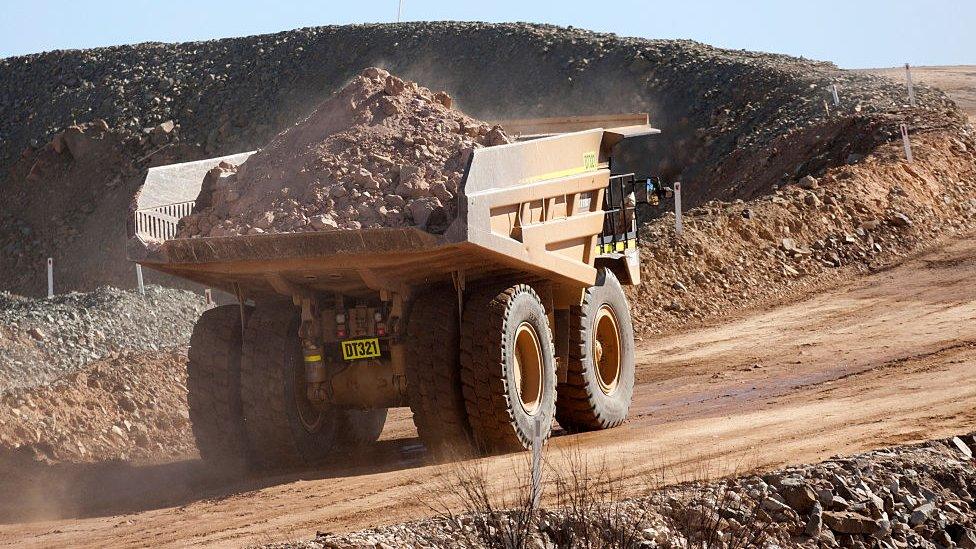China 'indefinitely' suspends key economic dialogue with Australia
- Published

China has "indefinitely" suspended key economic dialogue with Australia, the latest in a growing diplomatic rift between both countries.
Relations have been on the decline since Australia called for a probe into the origins of the virus and banned Huawei from building its 5G network.
Last year, China imposed sanctions on Australian goods like wine and beef.
In a statement on Thursday, a Chinese government commission accused Australia of having a "Cold War mindset".
"Recently, some Australian Commonwealth Government officials launched a series of measures to disrupt the normal exchanges and cooperation between China and Australia out of Cold War mindset and ideological discrimination," China's National Development and Reform Commission (NDRC) said in a statement.
Reacting to the decision, Australian Trade Minister Dan Tehan said it was "disappointing" but added that Canberra was still open to discussions.
Canberra has previously described the China-Australia Strategic Economic Dialogue as one of the "premier bilateral economic meetings with China".
China had previously already informally stopped ministerial-level communication between the two countries.
James Laurenceson, the Director of the Australia-China Relations Institute said Beijing's move appears to be extending that diplomatic freeze.
"Up until now, both Canberra and Beijing have been saying that the lower level day-to-day nitty-gritty continues as normal. And now we're seeing co-operation and dialogues even closer to that are being disrupted," he told the BBC.
Strained trade ties
The move appears to the be the latest in a string of tit-for-tat measures between both countries.
Mr Laurenceson said Beijing appears to be a responding directly to the Australian government's cancellation of two deals that the state of Victoria struck with China as part of its flagship Belt and Road Initiative.
"If this is the extent of retaliation, then Canberra will be pretty relieved because it strikes me as being quite calibrated. We're a long way here from withdrawing from something like ChAFTA (the China-Australia free trade agreement )," he said.
The Australian government has also reportedly sought new security advice over the port of Darwin, which has been leased to Chinese-owned company Landbridge, with some media outlets suggesting that the company could be forced to divest on national security grounds.
Australia and China are big trading partners but have disagreed on a number of important political issues
Until now China has mostly expressed its displeasure through trade measures, which have affected a dozen key Australian industries, including wine, barley and coal.
China is Australia's biggest trading partner, accounting for 29 per cent of Australia's trade with the world in 2019, according to the Department of Foreign Affairs and Trade.
Chinese investment in Australia plummeted 61% in 2020, the lowest number in six years, according to the Australian National University's Chinese Investment in Australia Database.
- Published22 April 2021

- Published4 May 2021

- Published1 March 2021
